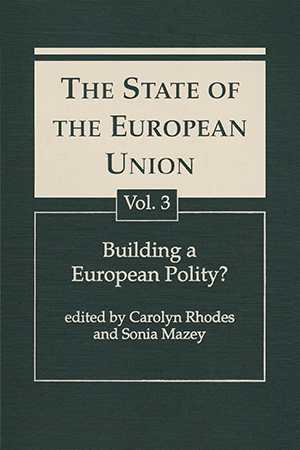
- 1995/526 pages
The State of the European Union, Vol. 3:
Building a European Polity?
Hardcover: $22.00
ISBN: 978-1-55587-605-0
With the ratification of the Treaty on European Union (Maastricht) in 1993, a new era in the history of European integration emerged—an era that juxtaposes the principle of subsidiarity with widening membership, and that challenges member states to balance interests of sovereignty with wider European goals.
This volume, the third in a biennial series, explores the implications of these and related developments in the context of integration analysis. The authors reflect on European integration in theoretical and historical perspective, review the impact of widening, deepening, and the "Europeanization" of member state politics on both member states and the Union, and examine the origins and character of a range of policies at the EU level.





